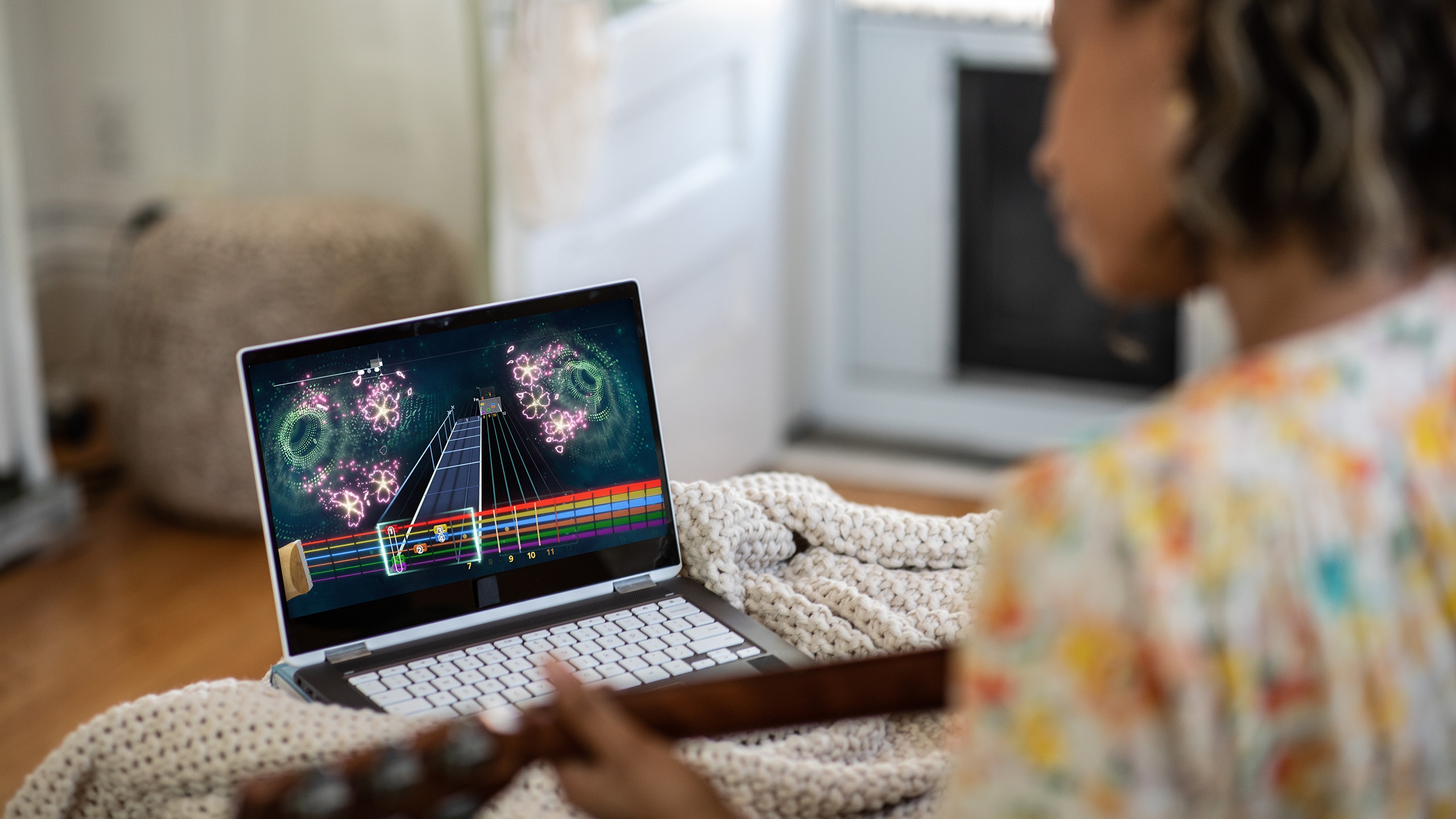Discover More

Explore the notetracking tools
The Rocksmith+ Workshop lets anyone use our notetracking tools to add licensed songs to the library. Try it today!
Learn More
Can't wait to play and learn?
Visit the News and Video section for lessons and tips in our articles and videos. Play along with new content Monday through Friday.
Learn More